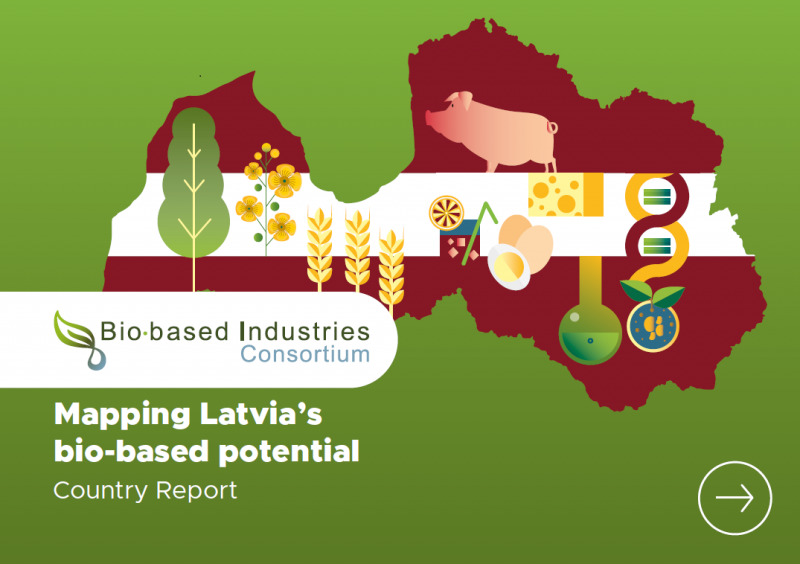Bio-based Industries Consortium (BIC) has published the first three in a series of new reports mapping bio-based potential and opportunities for green growth in Central and Eastern Europe 05.05.2020. The new reports for Estonia, Latvia un Lithuania illustrate the untapped potential in these three countries identifying new opportunities for the primary sectors, the food and beverage sector, the blue bioeconomy, bio-based chemicals, etc. through opportunities to valorise side streams and waste that today have low or no value.
Latvia offers substantial opportunities for the bio-based industry. Roughly half of the country is covered by forests, while around a quarter of the country is agricultural land. Agriculture, forestry and chemical industries are among the strong drivers of Latvia’s economy. Agriculture and forestry still play an important role in the country’s economy, accounting for 4% of GDP and 7% of employment (higher than the EU average). These industries are a sound basis for a bio-based industry in Latvia. The presence of a well-organised innovation support infrastructure contributes to a significant list of ingredients for a sustainable bio-based sector. In addition, the country was the first among the Baltic states to issue a bioeconomy strategy that should be great support for local, regional and national bio-based operations.
Latvian State Institute of Wood Chemistry (LSIWC) is named as one of the The Strategic Association for Bioeconomy Research, which brings together 9 institutions active in R&D in the various fields of bioeconomy in Latvia. LSIWC is also a BIC Associate Member and is a partner into realization of several European research projects (including Horizon 2020 projects) in sphere of Bioeconomy.
Press release "Bio-based sector offers new opportunities for green growth in EU-13".


